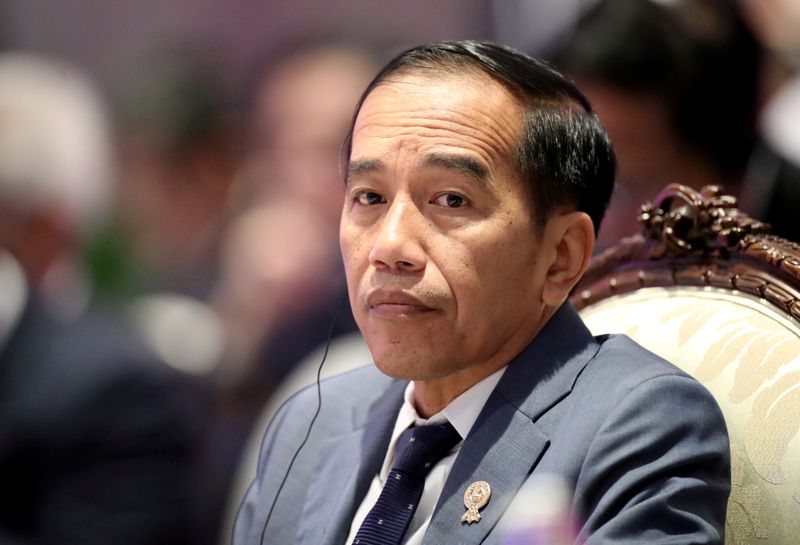JAKARTA (Reuters) - Indonesian President Joko Widodo is due to hand over to parliament soon so-called "omnibus laws" to replace dozens of overlapping measures in a bid to improve the investment climate and create jobs in Southeast Asia's biggest economy. Widodo's new approach comes as efforts to open up investment opportunities in his first term were often blunted by red tape and vested interests.
WHAT ARE "OMNIBUS LAWS"?
The laws aim to package multiple, unrelated areas of legislation that can be agreed with a single vote, though critics say they can be used to avoid debate and scrutiny.
Widodo said after his inauguration in October he planned a "job creation" omnibus bill to simplify 82 existing laws hampering businesses.
Finance Minister Sri Mulyani Indrawati also plans to reform the tax system by revising seven laws in a single bill.
WHAT WILL THEY REGULATE?
The job creation bill will cover 11 areas, including steps to ease restrictive labor laws and allow the government to establish a land bank to allocate space to investors.
Indonesia now has generous mandatory severance compensation that investors say deters formal hiring.
The bill will also ease investment rules and target issues ranging from immigration to intellectual property rights, an academic study of the draft showed.
The taxation bill will include a phased cut in corporate taxes to eventually reach 20%, from 25% now, and rules to tax electronic transactions.
It also aims to introduce a fairer personal income tax regime, relax rules on prepaid VAT payments and encourage reinvestment of dividends, among other steps.
WHY TAKE THIS APPROACH?
Widodo argues it means he can tackle many issues more quickly in a country where deliberating on a bill can be lengthy.
In his first term, he sought to streamline regulations and put government services online, but only had limited success in boosting investment.
HOW MUCH OPPOSITION IS THERE?
Unions and students have protested against what they see as "pro-business" changes to the labor law, while activists warn improving the investment climate could come at the expense of environmental protection and indigenous land rights.
Some economists also warn that cutting corporate taxes too quickly could hurt Indonesia's fiscal position.
WILL PARLIAMENT PASS THE BILLS?
The coalition backing Widodo controls 74% of the seats in parliament, boosting the prospect of getting the legislation through.
But changes to labor rules are politically sensitive and Widodo's own party - the Indonesian Democratic Party for Struggle (PDI-P) - has previously sided with trade unions.
Efforts by previous governments to revise labor laws failed and political analyst Burhanuddin Muhtadi said Widodo's big coalition could not guarantee smooth passage since parties had their own agendas.
However, proposed tax changes appear to face less public opposition.
HOW LONG WILL IT TAKE?
It typically takes more than a year for parliament and government officials to work on a piece of legislation, while debates on contentious bills often take longer.
Widodo has said he wants the omnibus bills passed next year and they top parliament's 2020 priorities, but that is no guarantee of quick passage.
It could take one to two years, Puteri Komarudin, a lawmaker on the finance commission, estimated at a recent hearing.
